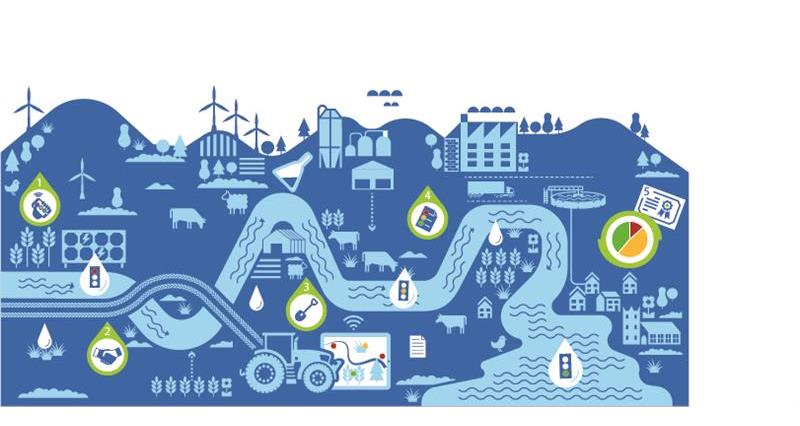This is to be summarised in a project report delivered in December, alongside the newly drafted ‘Earned recognition’ Water Standard.
How the standard works:
The Water Standard captures existing approaches which use water quality as a driver, bringing them together within a Wales specific format. This provides farmers with a list of options to deliver water quality improvements on farm, and identify methods for doing this. This makes their pollution risks and creates collaborative approaches to embracing water stewardship on streams and rivers across Wales.
The aim of incentivising water stewardship is to offer a self-serving motivation to farmers to help manage their water risks and provide a method of evidencing their efforts to consumers, retailers and regulators.

(Lorna Davis, Project Lead for the Farmer Led Approach to Nutrient management Project)
Drivers:
- Promote good practice in managing fertilisers and soils
- Encourage farmers to take reasonable precautions to prevent diffuse pollution from runoff or soil erosion
The standard is laid out in five easy steps, providing an approved process for the farmer and regulator to work together in a productive farm environment. This helps the farmer to capture the wider benefits delivered so providing social and environmental benefits through public goods and services outlined in the ‘Sustainable Farming and Our Land’ consultation and access the benefits of ‘Earned recognition’.
The five steps include:
STEP 1: GATHER AND UNDERSTAND
Identify infrastructure and activities. Quantify the level of risk they pose to ground and surface water quality.
STEP 2: COMMIT AND PLAN
Select the method and order to address risks using the ‘Toolbox’ of approved solutions
STEP 3: IMPLEMENT
Ongoing process to manage and remove risks within the Earned recognition process
STEP 4: EVALUATE
Capture the costs and value associated with the solutions and the benefits delivered using paper based, and/ or electronic mapping and management tools.
STEP 5: COMMUNICATE & DISCLOSE
Share agreed evidence with the regulator to create a ‘working relationship’ on managing risks, timescales for delivery. This evidences work completed, benefits delivered and compliance with regulation and the Water Standard.
The Water Standard enables farmers to better evidence their management of risk and explores opportunities to deliver multiple social, environmental and economic responsibilities for Wales and further afield.
This demonstrates industry’s commitment to self-improvement in line with NRW’s working definition of regulation. It also recognises that agricultures actions and expectations do not exist in isolation of other industries and individuals. Success in Welsh Government and NRW’s vision of delivering better water quality depends upon all parties working together towards a common goal and better understand the issues and challenges we face within
a catchment..
UK best practice advice sheets are available from the River Trust
See also...
